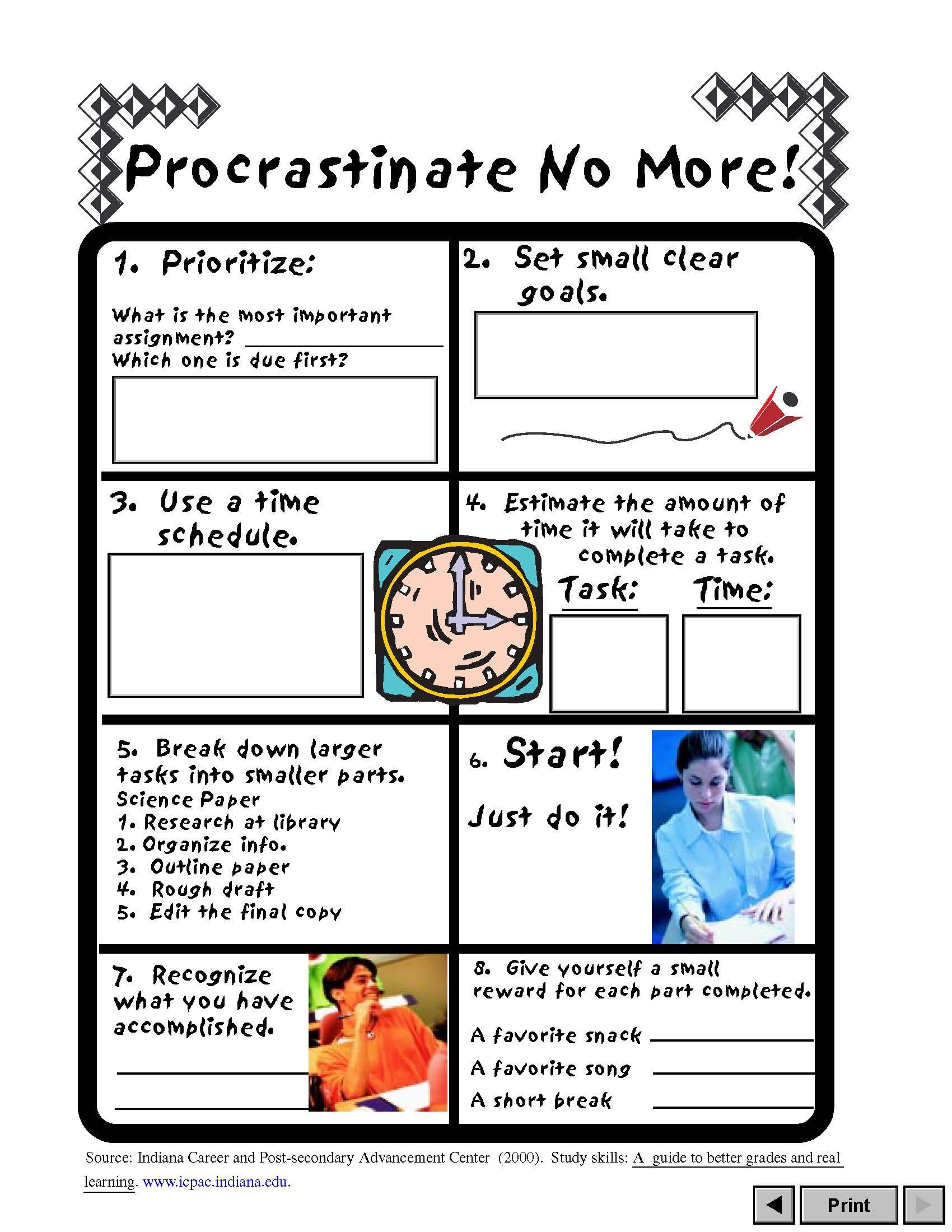5 CBT Worksheets to Beat Procrastination Today

If you've ever found yourself putting off tasks until the last minute, you're not alone. Procrastination is a common challenge many face, but there's a light at the end of the tunnel with Cognitive Behavioral Therapy (CBT). CBT worksheets can be highly effective tools to combat procrastination by addressing thought patterns and behaviors that lead to procrastination. Here are five structured CBT worksheets designed to help you tackle this habit head-on.
1. Thought Record Worksheet


Procrastination often stems from negative thoughts or beliefs about tasks or oneself. The Thought Record Worksheet helps you identify these thoughts:
- Identify the Situation: What are you avoiding?
- Write down your Automatic Thoughts: What are you thinking right now?
- Rate the Emotion: How do you feel, and to what degree?
- Challenge the Thought: Is there evidence to support or disprove your thought?
- Come up with an Alternative Thought: What's a more balanced or positive view?
💡 Note: Consistent use of this worksheet will help you restructure your thoughts over time, leading to a change in behavior.
2. Action Planning Worksheet


Sometimes, the sheer size of a task can be overwhelming, leading to procrastination. Here's how you can use the Action Planning Worksheet:
- Break Down the Task: List all the steps needed to complete the task.
- Set Deadlines: For each step, decide when it should be completed.
- Schedule Actions: Plan when you will work on each step.
- Identify Obstacles: What might get in your way?
- Develop Contingency Plans: How will you handle these obstacles?
3. Procrastination Motivation Worksheet


Motivation is key to beating procrastination, and this worksheet focuses on boosting it:
- Identify the Reward: What will you gain by completing the task?
- List Motivators: What keeps you motivated? (Interest in the task, fear of consequences, etc.)
- Set Motivational Goals: Define achievable goals that will keep you engaged.
- Explore Negative Impact: What happens if you continue to procrastinate?
4. Fear Of Failure Worksheet


Fear of failure is a common underlying cause of procrastination. This worksheet helps to:
- Identify your fears: What do you fear will happen if you fail?
- Rate these fears: How likely are they to actually happen?
- Rationalize the Fears: Are these fears realistic or exaggerated?
- Develop Strategies: How can you prepare to reduce the risk of failure?
- Reframe Failure: See failure as a learning opportunity.
5. Time Management Assessment Worksheet


Poor time management often leads to procrastination. Here's how this worksheet can help:
| Activity | Time Spent | Time Allocated | Difference |
|---|---|---|---|
| Task 1 | 3 hours | 1.5 hours | +1.5 hours |
| Task 2 | 2 hours | 1 hour | +1 hour |
| Total | 5 hours | 2.5 hours | +2.5 hours |

- Track Your Time: Note how much time you spend on tasks.
- Compare with Estimates: How did your time management align with your expectations?
- Adjust Your Plan: If you're spending too much time, find ways to optimize.
By incorporating these CBT worksheets into your daily routine, you're taking actionable steps towards overcoming procrastination. CBT provides a framework not only for addressing current procrastination issues but also for developing strategies to manage it in the long term. It's about changing your relationship with work and time, turning procrastination into productivity. In doing so, you'll find tasks become less daunting, and you'll gain a sense of control over your own productivity and mental well-being.
How often should I use CBT worksheets to beat procrastination?

+
Start by using the worksheets daily to identify patterns and behaviors. Once you’ve made progress, you can reduce frequency to weekly or as needed to manage your habits effectively.
Can CBT worksheets help with other aspects of productivity?

+
Yes, CBT principles and worksheets can be adapted to address various productivity issues like time management, stress management, and work-life balance.
What if I complete the worksheets but still struggle with procrastination?

+
Procrastination is multifaceted, and these worksheets are just one tool. Consider combining CBT with other strategies like goal setting, breaking tasks into smaller steps, or seeking professional help if the issue persists.